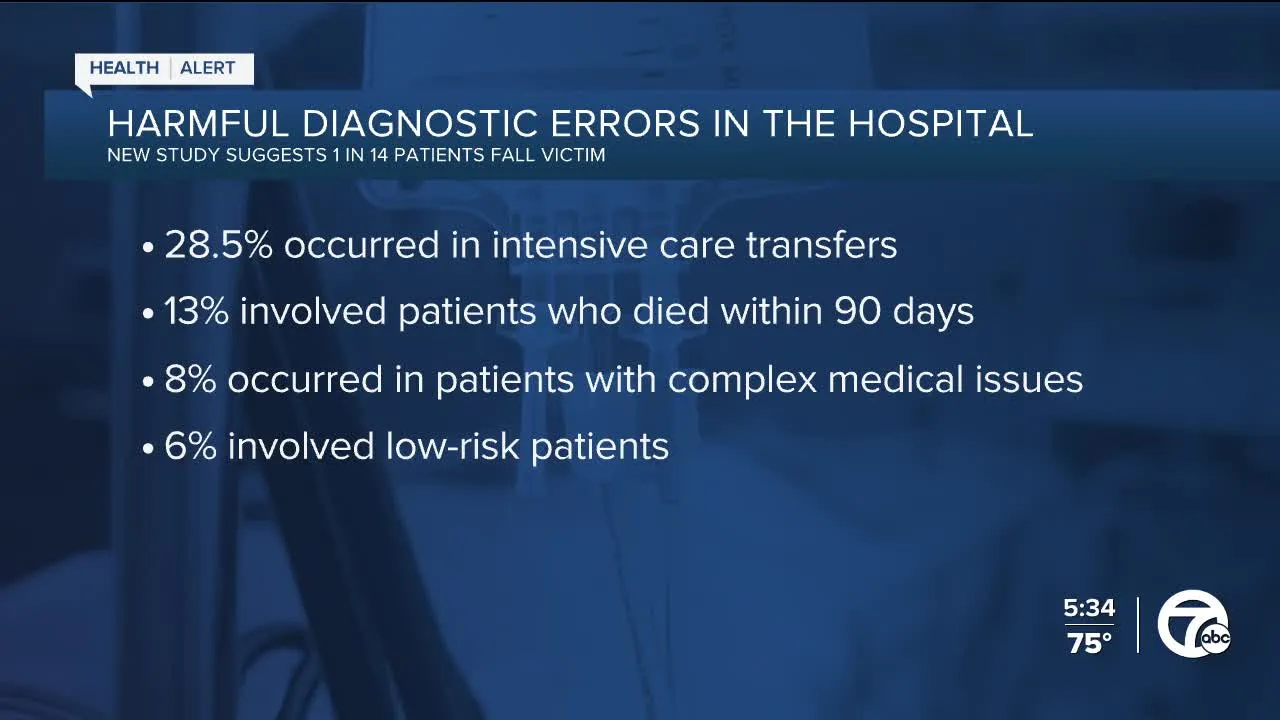Understanding Harmful Diagnostic Errors: A Concern for Metro Detroit Patients

Understanding the Study
A recent analysis published in BMJ Quality & Safety discovered that diagnostic errors plague a staggering 1 in 14 hospital patients, with many being preventable. Researchers examined 675 cases and identified critical pitfalls primarily occurring during patient transfers and for individuals with intricate health conditions.
Key Findings on Diagnostic Errors
- 54 diagnostic errors occurred during transfers to intensive care units.
- 28.5% of these errors associated with patients in intensive care.
- Older, non-Hispanic white patients on public insurance faced heightened risks.
Preventing Diagnostic Errors: Empowering Patients
Patients can take proactive measures to minimize their risk of falling victim to these harmful errors:
- Share your complete medical history with healthcare providers.
- Maintain and review your medical records for discrepancies.
- Always ask questions if diagnosis or treatment seems unclear.
- Document your symptoms meticulously.
- Seek a second opinion if unsure about medical advice.
- Follow up on test results diligently.
Hospital Accountability: A Call to Action
For lasting change, hospitals must enhance their monitoring mechanisms and consider utilizing cutting-edge AI tools to track and reduce diagnostic errors effectively.
Disclaimer: The information provided on this site is for informational purposes only and is not intended as medical advice. We are not responsible for any actions taken based on the content of this site. Always consult a qualified healthcare provider for medical advice, diagnosis, and treatment. We source our news from reputable sources and provide links to the original articles. We do not endorse or assume responsibility for the accuracy of the information contained in external sources.
This article was prepared using information from open sources in accordance with the principles of Ethical Policy. The editorial team is not responsible for absolute accuracy, as it relies on data from the sources referenced.